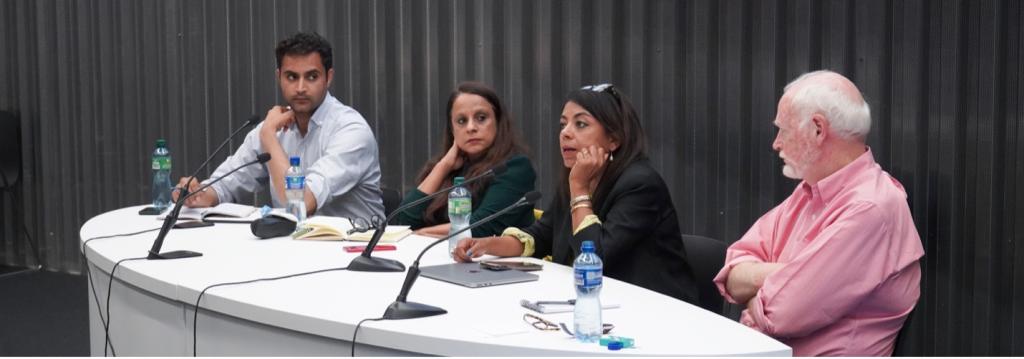With 970 million voters eligible to vote over seven phases from 19 April to 1 June, the 2024 general election in India is celebrated as the world’s largest-ever electoral exercise. As Prime Minister Narendra Modi and his party seek a third term in office, the election unfolds against a backdrop of deepening polarization and inequality, insistent questions about the nature and robustness of India’s democracy, increasing concern about its constitutional and institutional arrangements and a sharp decline in its scores on major democracy indices. Recent events, like the arrests of opposition leaders and controversies about political financing, have exacerbated such fears. Where does Indian democracy stand and where is it headed?
On 21 May, the Albert Hirschman Centre on Democracy, in collaboration with the Association Genève-Asie (AGA), organised a panel discussion on Indian democracy and upcoming elections
In introductory remarks, Graziella Moraes Silva, AHCD Co-Director, Centre, highlighted the event was part of the Albert Hirschman Centre on Democracy’s programme of activities on “Democracy in 2024: What is at stake?” “Debates about democracy abandoned naïve optimism,” she highlighted, as a result of the “growing presence” of autocracy. Moderator Tripurdaman Singh, SNSF Ambizione Research Fellow, Albert Hirschman Centre on Democracy, Geneva Graduate Institute, noted that with 970 million voters eligible to vote, the Indian election was the largest electoral exercise ever witnessed. He reflected on how the last decade with Narendra Modi as PM contributed to “democratic backsliding and autocratisation” suggesting that “at stake is the very future of Indian democracy itself”. “Even if an opposition alliance is to win”, he continued, “what happens to Hindu ideology that has occupied so much political space in India?”
Panelist James Manor, Professor Emeritus of Commonwealth Studies in the School of Advanced Study, University of London, said that 10 years of Modi’s leadership has ushered a new authoritarian political system in India, with power centralized at the apex of the system where Modi. A main theme, he continued, is “deinstitutionalization” – hollowed-out institutions in the interest of one-man rulership. Due to this reliance on a single leader, “the long-term premise of his system is weak. Without Modi there, the system doesn’t have much of a future.”
Mukulika Banerjee, Associate Professor, Department of Anthropology, London School of Economics and Political Science, said the 2024 Indian elections are “unlike any other”, with different visions or imaginings of India in contest: on the one hand, a diverse and federal India, and, on another, an Ideological project about Hindu majoritarianism. She stressed that social inequality in India is at its highest, it is 1% of the population owning 40% of wealth. She argued that the elections are a “test of an Indian sensibility”: “This is the election when everything is at stake. Democracy backslides when you don’t cultivate it daily. Indian should be citizens, not fans.”
Shruti Kapila, Professor of History and Politics, Cambridge University, said that “regardless of what happens on 4 June, this campaign belongs to the opposition as political discourse has changed since 2022.” In her view, this “is India’s most consequential election. The basic political settlement of 1950 is up for grabs.” She continued by describing Modi as an early precursor of the global turn against rule of experts, and in favour of populism, the strongman – which she described as “the age of anger”.
LISTEN to a joint episode between the podcasts Who is Voting in 2024? and What Matters Today on the elections in India, featuring Mukulika Banerjee and AHCD Co-Director Gopalan Balachandran.


